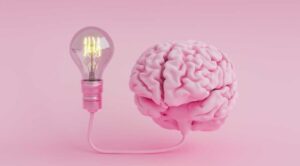October 29th Republic Day is our national holiday celebrating the founding of our country and commemorating the day the country began to be governed as an independent republic. It has great meaning for every member of society. This meaning can also affect our feelings and thoughts and reactions. In this article, we explain the meaning and effects of October 29th Republic Day on our brain and emotions.
Celebrating our Republic, founded by our leader Atatürk, as a holiday symbolizes the decision of the citizens of the Republic of Turkey to govern independently. It therefore emphasizes people’s sense of pride. Pride is also closely linked to social connections and personal identity. Pride is linked to the medialprefrontal cortex in our brain. Pride can be influenced by a part of the brain known as the reward pathway. The limbic system plays an important role in dealing with rewards and feelings of pleasure. The feeling of pride can cause activations in regions such as the ventralstriatum, which is part of this system.
Republic Day plays a role in bringing people together and promoting solidarity within society. Feelings of unity and solidarity are also related to people’s ability to remember and evaluate positive social experiences in a positive way. The hippocampus and similar memory processing regions are important in this context. Again, social bonds and feelings of unity are associated with temporaparietal regions that play an important role in the processing of social information.
October 29th Republic Day stimulates patriotic feelings and hormones to work actively. It can increase people’s love and commitment to their country. It can also express gratitude to Atatürk and others who fought with him. Patriotism, embracing the values of the country and gratitude are associated with the hormone oxytocin. Oxytocin is produced in areas of the hypothalamus called the paraventricular nucleus and the supraaoptic nucleus. After being produced by the hypothalamus, this hormone is secreted in the posterior lobe of the pituitary gland. Oxytocin plays an important role in a number of emotional and physiological processes, such as social connections, mother-infant relationships and romantic relationships.
Republic Day provides an opportunity to reflect on Turkey’s past achievements and future potential. People are driven by hope and motivation for the country’s development and progress. Motivation is associated with dopamine production in the ventral segmental area. Dopamine signals from this area promote the association of motivation with reward and the maintenance of desired behaviors.
As the NeuroMark family, we celebrate our Republic Day on October 29 and hope that our feelings of unity and solidarity will continue.
Reference
Psychologist Merve Altındağ
Üngüren, E. (2015). Beynin nöroanatomik ve nörokimsayal yapısının kişilik ve davranış üzerindeki etkisi. Uluslararası Alanya İşletme Fakültesi Dergisi, 7(1).
Dönmezer, S. (2011). Cumhuriyetimiz ve Milli Bütünlük Ruhu. Journal of IstanbulUniversityLawFaculty, 50(1-4), 319-326.




